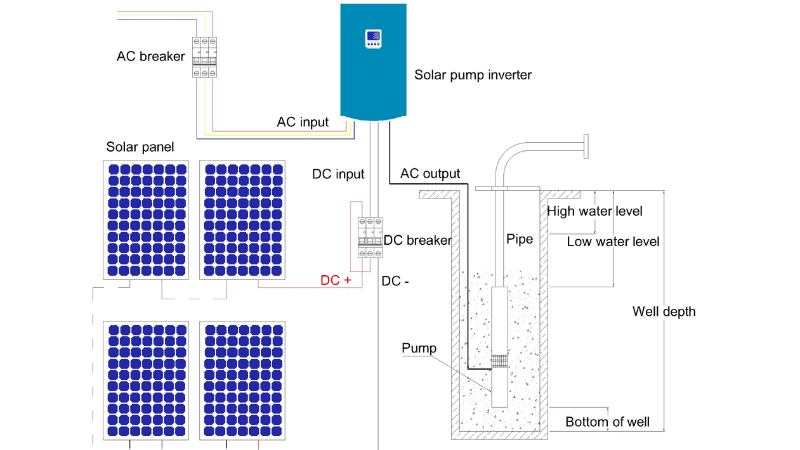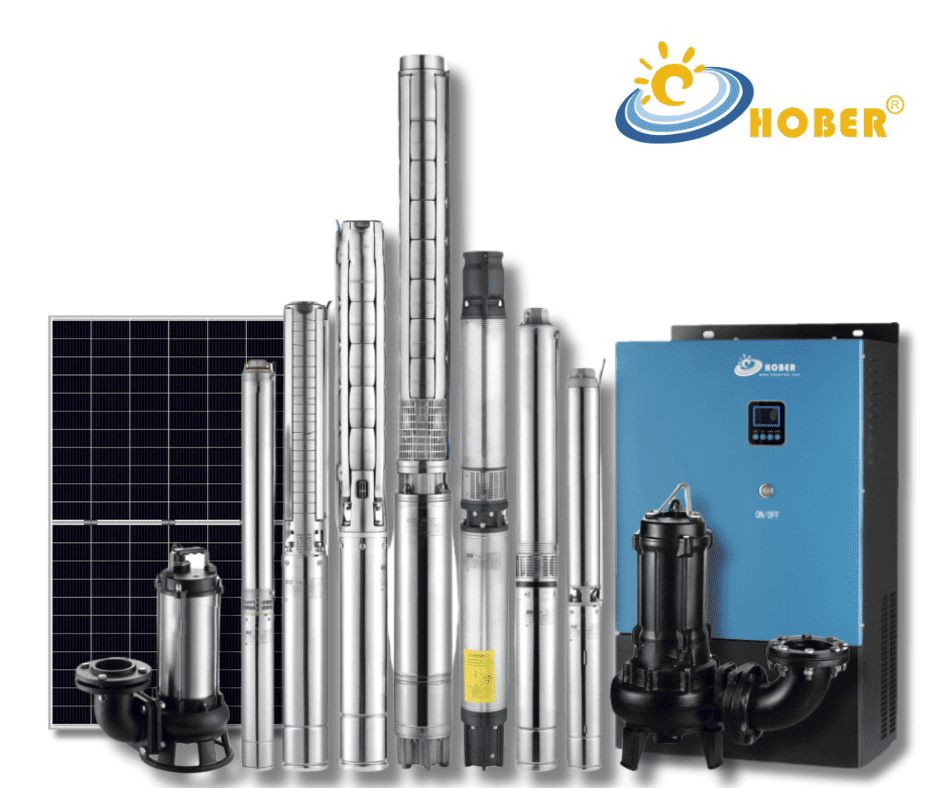As the CEO of HOBER, I’ve had extensive experience in configuring solar panels for 3 phase 380v/400V/440V water pumps. make the tradional water pump to solar pump ,Designing a solar panel system for a 3-phase 380V/400V/440V water pump requires careful planning and consideration of various factors, including pump power requirements, solar panel capacity, solar pump inverter specifications, and safety regulations.

Understanding the Basics of Solar 3 Phase Water Pumps
Solar panels convert sunlight dc power into ac power to drive the water pump by solar pump inverter , the pump including 3 phase water pumps and single phase water pump . These pumps are commonly used in industrial and agricultural settings due to their efficiency and reliability.
For optimal performance, it’s crucial to select solar panels with the right voltage open circuit (VOC) and voltage maximum power (VMP). The ideal solar input VOC range is between 400-800V, while the VMP should be greater than 500V. For hybrid systems, a VMP of over 560V is recommended.
Determine Pump Power Requirements:
- Assess Pump Specifications: Check the power requirements of your pump. For 3-phase 380V/400V/440V pumps, this usually involves a higher kW rating. solar panel power =pump power *1.5 times
Key Specifications for Solar Panels: VOC and VMP
For optimal performance, it’s crucial to select solar panels with the right voltage open circuit (VOC) and voltage maximum power (VMP). The ideal solar input VOC range is between 400-800V, while the VMP should be greater than 500V. For hybrid systems, a VMP of over 560V is recommended.
- Panel Capacity: Choose solar panels with sufficient wattage to meet the energy demands. High-efficiency panels are recommended.
- Total Number of Panels: Divide the total daily energy requirement of the pump by the average daily energy output per solar panel to find the number of panels needed.
Solar Pump Inverter Selection:
- Inverter Type: Use a 3-phase inverter compatible with your pump’s voltage (380V/400V/440V). An inverter with MPPT (Maximum Power Point Tracking) technology is ideal.
- Capacity: The inverter should handle the total power output of the connected solar panels and the pump’s load.
System Design:
- Array Configuration: Configure the solar panels in series and/or parallel to match the input requirements of the inverter.
- Cabling and Connectors: Use appropriate gauge wires and weatherproof connectors for reliability and safety.
Installation Considerations:
- Orientation and Angle: Install panels facing the sun (usually south in the Northern Hemisphere) at an angle optimizing sun exposure.
- Shading: Avoid locations where panels might be shaded.
Safety and Regulations:
- Compliance: Ensure the system complies with local electrical codes and standards.
- Protection Devices: Install necessary protection devices like circuit breakers and surge protectors.
Conclusion and Next Steps
In conclusion, configuring solar panels for 3 phase water pumps requires careful planning and execution. By following these guidelines, you can ensure efficient and reliable operation of your solar-powered systems.
FAQs
- What is the ideal VOC range for solar panels used with 3 phase water pumps?
- The ideal VOC range is 400-800V.
- What are the benefits of a hybrid solar system?
- Hybrid systems offer greater reliability and flexibility, especially in areas with variable sunlight.
- How can I optimize the efficiency of my solar panels?
- Proper positioning, angle adjustment, and regular maintenance can enhance efficiency.
- What should I consider when choosing solar panel suppliers?
- Look for suppliers with a strong track record, quality products, and good customer service.
- Can solar-powered water pumps be used in residential settings?
- Yes, they can be used in residential settings, especially for large-scale water needs.

